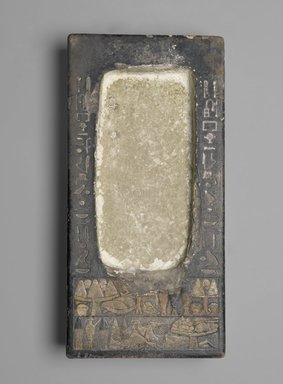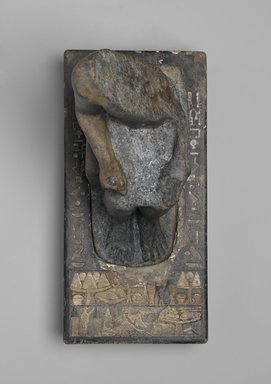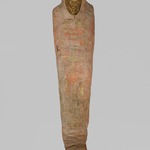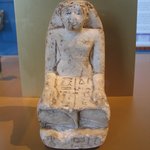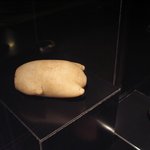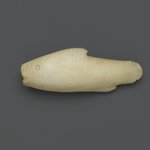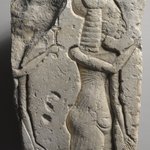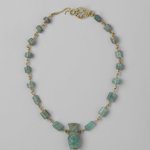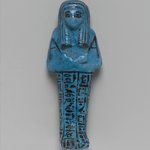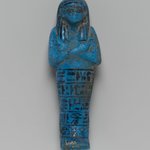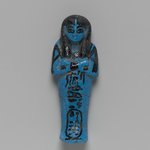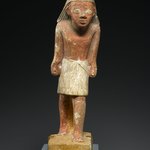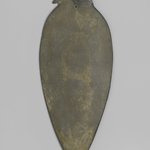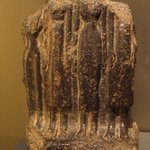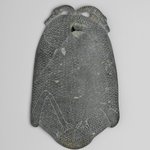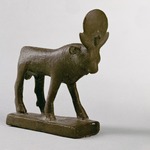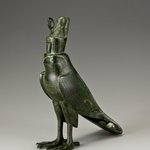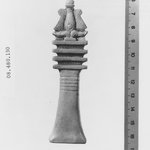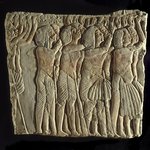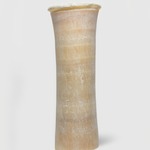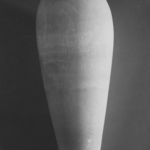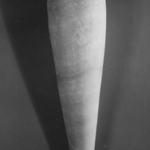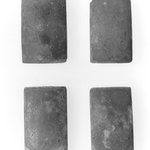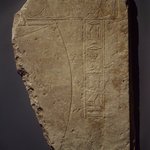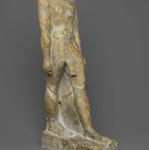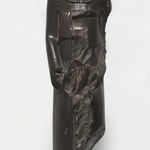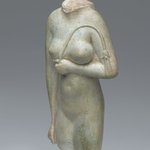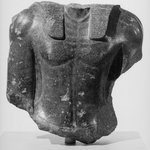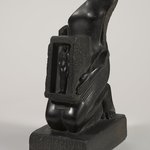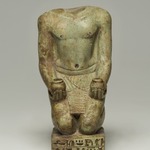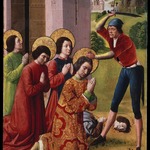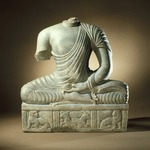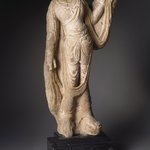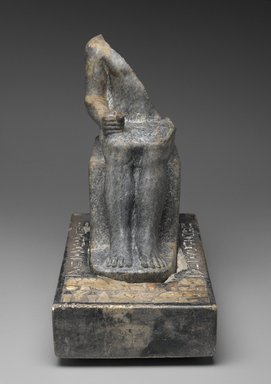

Seated Statuette of Sekhemka, ca. 2400–2345 B.C.E. Anorthosite gneiss, limestone, pigment, 15 1/4 x 7 7/8 x 16 1/4 in., 56 lb. (38.7 x 20 x 41.3 cm, 25.4kg). Brooklyn Museum, Charles Edwin Wilbour Fund, 37.23Ea-b. Creative Commons-BY (Photo: Brooklyn Museum, 37.23E_front_PS2.jpg)

Seated Statuette of Sekhemka, ca. 2400–2345 B.C.E. Anorthosite gneiss, limestone, pigment, 15 1/4 x 7 7/8 x 16 1/4 in., 56 lb. (38.7 x 20 x 41.3 cm, 25.4kg). Brooklyn Museum, Charles Edwin Wilbour Fund, 37.23Ea-b. Creative Commons-BY (Photo: Brooklyn Museum, 37.23E_back_bw.jpg)
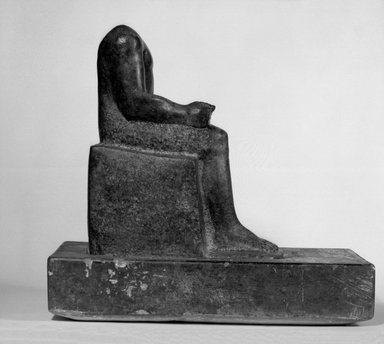
Seated Statuette of Sekhemka, ca. 2400–2345 B.C.E. Anorthosite gneiss, limestone, pigment, 15 1/4 x 7 7/8 x 16 1/4 in., 56 lb. (38.7 x 20 x 41.3 cm, 25.4kg). Brooklyn Museum, Charles Edwin Wilbour Fund, 37.23Ea-b. Creative Commons-BY (Photo: Brooklyn Museum, 37.23E_right_bw.jpg)
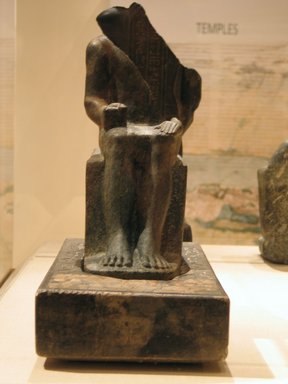
Seated Statuette of Sekhemka, ca. 2400–2345 B.C.E. Anorthosite gneiss, limestone, pigment, 15 1/4 x 7 7/8 x 16 1/4 in., 56 lb. (38.7 x 20 x 41.3 cm, 25.4kg). Brooklyn Museum, Charles Edwin Wilbour Fund, 37.23Ea-b. Creative Commons-BY (Photo: Brooklyn Museum, CUR.37.23E_wwgA-2.jpg)
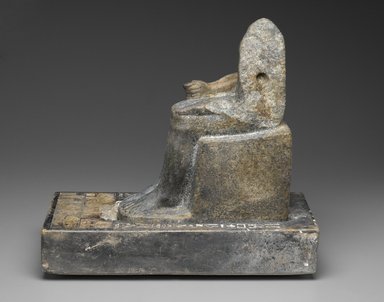
Seated Statuette of Sekhemka, ca. 2400–2345 B.C.E. Anorthosite gneiss, limestone, pigment, 15 1/4 x 7 7/8 x 16 1/4 in., 56 lb. (38.7 x 20 x 41.3 cm, 25.4kg). Brooklyn Museum, Charles Edwin Wilbour Fund, 37.23Ea-b. Creative Commons-BY (Photo: Brooklyn Museum, 37.23E_profile_left_PS2.jpg)
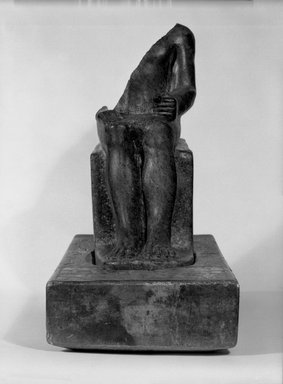
Seated Statuette of Sekhemka, ca. 2400–2345 B.C.E. Anorthosite gneiss, limestone, pigment, 15 1/4 x 7 7/8 x 16 1/4 in., 56 lb. (38.7 x 20 x 41.3 cm, 25.4kg). Brooklyn Museum, Charles Edwin Wilbour Fund, 37.23Ea-b. Creative Commons-BY (Photo: Brooklyn Museum, 37.23E_front_bw.jpg)
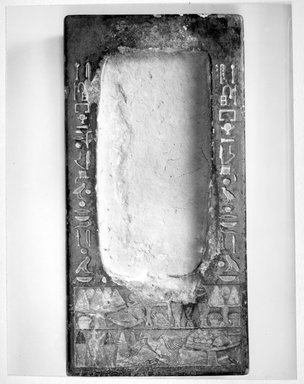
Seated Statuette of Sekhemka, ca. 2400–2345 B.C.E. Anorthosite gneiss, limestone, pigment, 15 1/4 x 7 7/8 x 16 1/4 in., 56 lb. (38.7 x 20 x 41.3 cm, 25.4kg). Brooklyn Museum, Charles Edwin Wilbour Fund, 37.23Ea-b. Creative Commons-BY (Photo: Brooklyn Museum, 37.23E_base_print_bw.jpg)
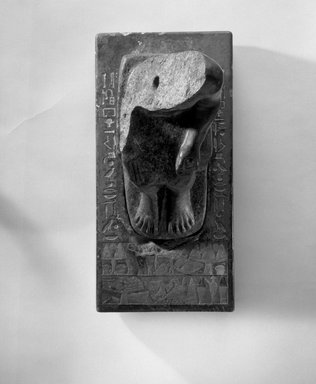
Seated Statuette of Sekhemka, ca. 2400–2345 B.C.E. Anorthosite gneiss, limestone, pigment, 15 1/4 x 7 7/8 x 16 1/4 in., 56 lb. (38.7 x 20 x 41.3 cm, 25.4kg). Brooklyn Museum, Charles Edwin Wilbour Fund, 37.23Ea-b. Creative Commons-BY (Photo: Brooklyn Museum, 37.23E_top_bw.jpg)
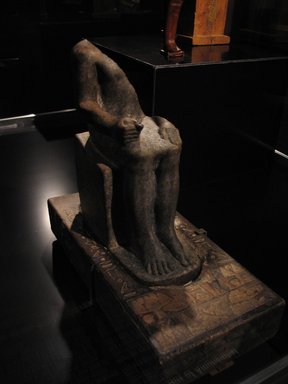
Seated Statuette of Sekhemka, ca. 2400–2345 B.C.E. Anorthosite gneiss, limestone, pigment, 15 1/4 x 7 7/8 x 16 1/4 in., 56 lb. (38.7 x 20 x 41.3 cm, 25.4kg). Brooklyn Museum, Charles Edwin Wilbour Fund, 37.23Ea-b. Creative Commons-BY (Photo: Brooklyn Museum, CUR.37.23E_tlf.jpg)

Seated Statuette of Sekhemka, ca. 2400–2345 B.C.E. Anorthosite gneiss, limestone, pigment, 15 1/4 x 7 7/8 x 16 1/4 in., 56 lb. (38.7 x 20 x 41.3 cm, 25.4kg). Brooklyn Museum, Charles Edwin Wilbour Fund, 37.23Ea-b. Creative Commons-BY (Photo: Brooklyn Museum, 37.23E_profile_right_PS2.jpg)
Seated Statuette of Sekhemka
Egyptian, Classical, Ancient Near Eastern Art
The statue was repaired in antiquity, a fact deduced from the round hole (visible in the break), which was made with an ancient drill. Since this type of stone and this seated pose were nearly always limited to royal statues in the Fifth Dynasty, it is likely that Sekhemka repaired a broken and discarded royal statue. The beautifully carved limestone base illustrates the offerings, such as bread, beer, cattle, and fowl, that Sekhemka hoped for in the afterlife.

